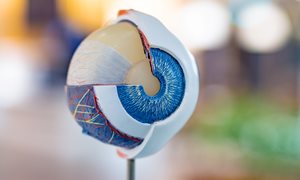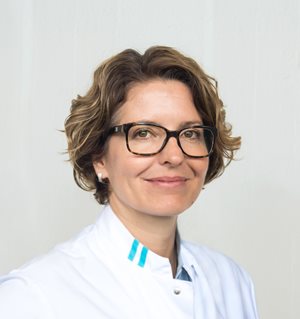
A consortium led by Caroline Klaver of Radboud university medical center will develop new treatments against blindness. The researchers aim to repair damaged genes, print a new retina with a bio-printer, and investigate how zebrafish manage to repair their retina on their own. The consortium will receive 22 million euros from the NWO Gravitation program of the Ministry of Education, Culture and Science.
Blindness can occur in various ways. In young people, a hereditary retinal condition is the main cause, while age-related macular degeneration is the main cause in the elderly. The Ministry of Education, Culture and Science is investing 22 million euros in the Lifelong Vision project, in which researchers will develop new therapies that can be used for different forms of blindness.
An important part of the project is gene therapy. If a gene mutation leads to blindness, doctors can already deliver an entirely new gene to the retina. They inject it under the retina in the eye, hoping it reaches the correct cells and induces them to produce healthy proteins. ‘Unfortunately, this doesn't work very well yet’, says Professor of Epidemiology and Genetics of Eye Diseases Caroline Klaver of Radboudumc. ‘Many genes are not suitable for this because they are too large. Therefore, we want to perform the repair much more precisely, using gene editing. In this process, we only rewrite the error in the gene, rather than replacing the entire gene.’
Zebrafish
Additionally, the researchers are exploring how to protect cells in the eye that are on the verge of dying. They have already shown why cells in the eye die when they have a genetic defect. This provides clues for keeping cells alive, for example, with a special cocktail of proteins that changes the death pathway. The strategy of zebrafish is also very interesting: these animals can repair their retina themselves, something humans cannot do. The researchers want to observe how zebrafish achieve this and determine if this repair can also be introduced in humans.
Last but not least, the researchers will develop cell therapy. ‘The retina is brain tissue. It is a complex tissue with as many as ten different layers, in which the nerve cells all interact with each other’, explains Klaver. ‘Previously, we attempted to restore damaged retina by injecting stem cells, but that did not work well. Now, we will explore if we can create a retina with a bio-printer, which stacks the different cell layers on top of each other. And we will investigate how that printed retina can communicate with blood vessels underneath. This is very new and exciting research.’
To establish these therapies, we will develop in vitro model systems, but also AI models which can determine who is eligible for these treatments. This ensures that we make functional therapies and that the right patient receives the right treatment at the right time.
Consortium
Eight research institutions participate in the Lifelong Vision project. The project is led by Caroline Klaver from Radboudumc. Other principal investigators include Rob Collin and Ronald Roepman from Radboudumc, Camiel Boon and Arthur Bergen of Amsterdam UMC, and Clarisa Sánchez from the UvA.
Gravitation: Internationally leading research
The Gravitation program is executed by NWO on behalf of the Ministry of Education, Culture and Science. The seven consortia selected this year will collectively receive 160.5 million euros. Researchers will conduct top research and collaborate multidisciplinarily for ten years. Minister Robbert Dijkgraaf (Education, Culture and Science): ‘With investments like these, we ensure that the Netherlands remains at the scientific forefront. This not only yields important new insights but also strengthens the power of our economy. And it brings innovations from which we all benefit. I am proud that we have such scientific talent in our own country.’
 Project leader Caroline Klaver
Project leader Caroline Klaver
This grant is made possible in cooperation with Grant Support Office.
-
Want to know more about these subjects? Click on the buttons below for more news.
More information
Annemarie Eek

wetenschapsvoorlichter
Related news items

Putting the immune system on its feet
7 July 2025Immune cells gently kick their surroundings using hundreds of tiny feet. If they bump into something hard, it can have major consequences.
go to page


_1.png?width=500&height=300&ext=.png&type=BlockColumn1Zoom1)
